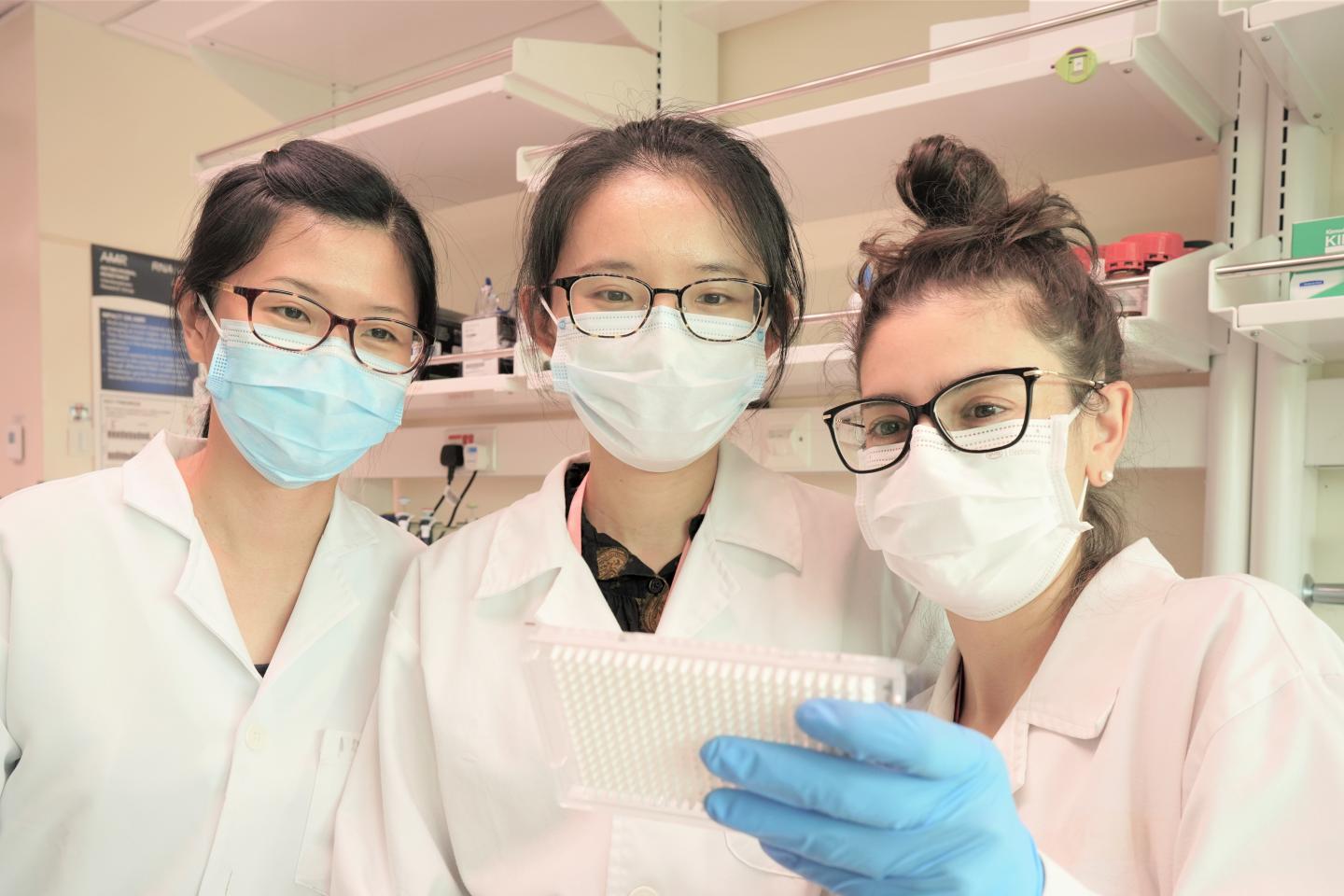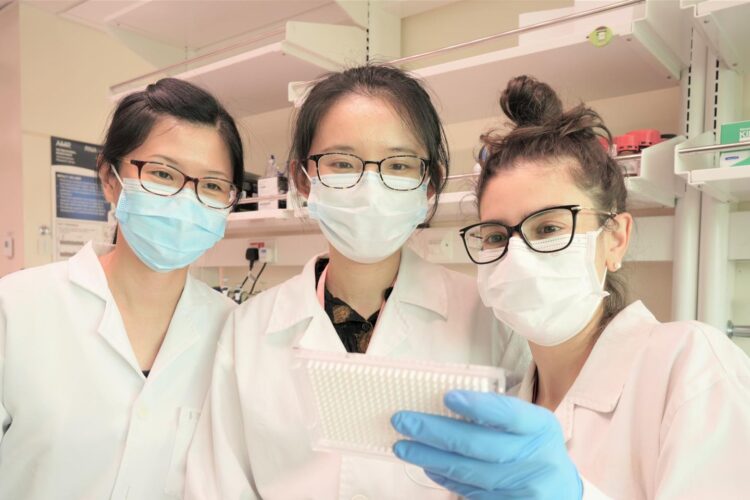SMART researchers have developed an innovative method to detect and quantify the more transmissible B.1.1.7 (Alpha) variant of concern via wastewater epidemiology

Credit: Zhan Yi Lee
Researchers from the Antimicrobial Resistance (AMR) Interdisciplinary Research Group (IRG) at Singapore-MIT Alliance for Research and Technology (SMART), MIT’s research enterprise in Singapore, alongside collaborators from Biobot Analytics, Nanyang Technological University (NTU) and Massachusetts Institute of Technology (MIT), have successfully developed an innovative, open-source molecular detection method that is able to detect and quantify the B.1.1.7 (Alpha) variant of SARS-CoV-2. The breakthrough paves the way for rapid, inexpensive surveillance of other SARS-CoV-2 variants in wastewater.
As the world continues to battle and contain COVID-19, the recent identification of SARS-CoV-2 variants with higher transmissibility and increased severity has made the development of convenient variant tracking methods essential. Currently, identified variants include the B.1.17 (Alpha) variant first identified in the United Kingdom and the B.1.617.2 (Delta) variant first detected in India.
Wastewater surveillance has emerged as a critical public health tool to safely and efficiently track the SARS-CoV-2 epidemic in a non-intrusive manner, providing complementary information that enables health authorities to acquire actionable community-level information. Most recently, viral fragments of SARS-CoV-2 were detected in housing estates in Singapore through a proactive wastewater surveillance programme. This information, alongside surveillance testing, allowed Singapore’s Ministry of Health (MOH) to swiftly respond, isolate and conduct swab tests as part of precautionary measures.
However, detecting variants through wastewater surveillance is less commonplace due to challenges in existing technology. Next-generation sequencing (NGS) for wastewater surveillance is time-consuming and expensive. They also lack the sensitivity required to detect low variant abundances in dilute and mixed wastewater samples due to inconsistent and/or low sequencing coverage.
The method developed by the researchers is uniquely tailored to address these challenges and expands the utility of wastewater surveillance beyond testing for SARS-CoV-2, towards tracking the spread of SARS-CoV-2 variants of concern. Dr Wei Lin Lee, Research Scientist at SMART AMR and first author on the paper added, “This is especially important in countries battling SARS-CoV-2 variants. Wastewater surveillance will help find out the true proportion and spread of the variants in the local communities. Our method is sensitive enough to detect variants in highly diluted SARS-CoV-2 concentrations typically seen in wastewater samples, and produces reliable results even for samples which contain multiple SARS-CoV-2 lineages.”
Led by Associate Professor Janelle Thompson of NTU, and MIT Professor and SMART AMR Principal Investigator Eric Alm, the team’s research “Quantitative SARS-CoV-2 Alpha variant B.1.1.7 Tracking in Wastewater by Allele-Specific RT-qPCR” has been published in prestigious journal, Environmental Science & Technology Letters. The research explains the innovative, open-source molecular detection method based on allele-specific RT-qPCR that detects and quantifies the B.1.1.7 (Alpha) variant. The developed assay, tested and validated in wastewater samples across 19 communities in the US, is able to reliably detect and quantify low levels of the B.1.1.7 (Alpha) variant with low cross-reactivity, and at variant proportions down to 1% in a background of mixed SARS-CoV-2 viruses.
Targeting spike protein mutations that are highly predictive of the B.1.1.7 (Alpha) variant, the method can be implemented using commercially available RT-qPCR protocols. Unlike commercially available products that use proprietary primers and probes for wastewater surveillance, the paper details the open-source method and its development that can be freely used by other organisations and research institutes for their work on wastewater surveillance of SARS-CoV-2 and its variants.
The breakthrough by the research team in Singapore is currently utilised by Biobot Analytics, a global leader in wastewater epidemiology headquartered in Cambridge, Massachusetts, in the US, serving states and localities throughout the country. Using the method, Biobot Analytics is able to accept and analyse wastewater samples for the B.1.1.7 (Alpha) variant and plans to add additional variants to its analysis as methods are developed.
“Using the team’s innovative method, we have been able to monitor the B.1.1.7 (Alpha) variant in local populations in the US – empowering leaders with information about COVID-19 trends in their communities and allowing them to make considered recommendations and changes to control measures,” said Dr Mariana Matus, Biobot Analytics CEO and Cofounder.
The SMART AMR team is also currently developing specific assays that will be able to detect and quantify the B.1.617.2 (Delta) variant, which has recently been identified as a variant of concern by the World Health Organisation.
“This method can be rapidly adapted to detect new variants of concern beyond B.1.1.7,” said co-corresponding author Professor Eric Alm of MIT and Principal Investigator at SMART AMR. “Our partnership with Biobot Analytics has translated our research into real-world impact beyond the shores of Singapore and aid in the detection of COVID-19 and its variants, serving as an early warning system and guidance for policymakers as they trace infection clusters and consider suitable public health measures.”
###
The research is carried out by SMART and supported by the National Research Foundation (NRF) Singapore under its Campus for Research Excellence And Technological Enterprise (CREATE) programme.
Media Contact
Glenn
[email protected]
Original Source
http://smart.
Related Journal Article
http://dx.





